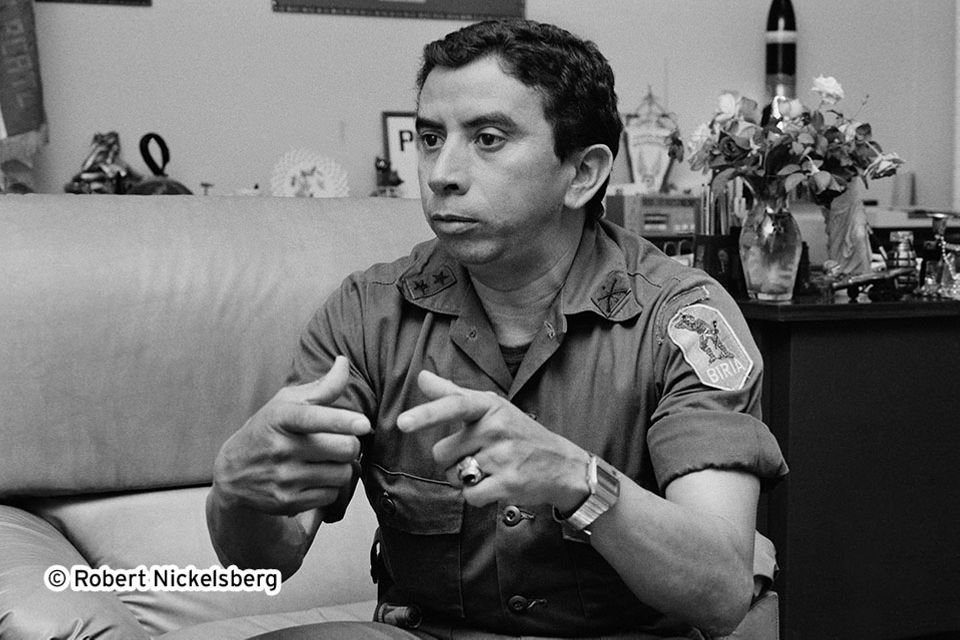
Credits: Nickelsberg, Robert. “Atlacatl Battalion Commander Lt. Col. Domingo Monterrosa In Santa Tecla, El Salvador”, The Photographic Archive of Robert Nickelsberg. Washington Research Library Consortium Digital Collections.
Introduction
The above image is a picture of Domingo Monterrosa Barrios who served as a military commander for the Salvadoran Army during the civil war. Most notably, Monterrosa commanded the Atlacatl Battalion from 1981-1984. Established in March of 1981, the Atlacatl Battalion was one of the Salvadoran Army’s three specialized first-response battalions. The Salvadoran Army created these battalions after the FLMN (the insurgent guerrilla group) carried out a successful offensive strike in January 1981. To help the Salvadoran Army, the United States provided the Atacatl soldiers of the battalions with military training and weapons. In fact, Monterrosa attended the US School of the Americas in 1966 to receive training in counter-insurgency strategies. Concerns about the Atlacatl Batllion’s actions started to arise when rumors began about human rights abuses. Yet, the Atlacatl Battalion continued to carry out operations for the Salvadoran Government until the end of the civil war. In accordance with the Chapultepec Peace Agreements, the Atlacatl Battalion disbanded at the end of the Civil War.
After the civil war ended, the United Nations established the Truth Commission for El Salvador to investigate reported human rights violations including the Mozote Massacre. In the final report, the Truth Commission verified the allegations that the Atlacatl Battalion had massacred the civilians living in the village of El Mozote and surrounding communities. In addition to the Mozote Massacre, the report also confirmed that the battalion was responsible for other massacres that occurred during the war such as the El Calabozo massacre and the deaths of six Jesuit priests in 1989. Due to their connection to these war crimes, both Montessa and the Atlacatl Battalion have controversial legacies. After his death in 1984, Montessa was considered a national hero by the Salvadoran government because of his actions during the war. However, people’s opinion of Monterrosa has become more critical over time.